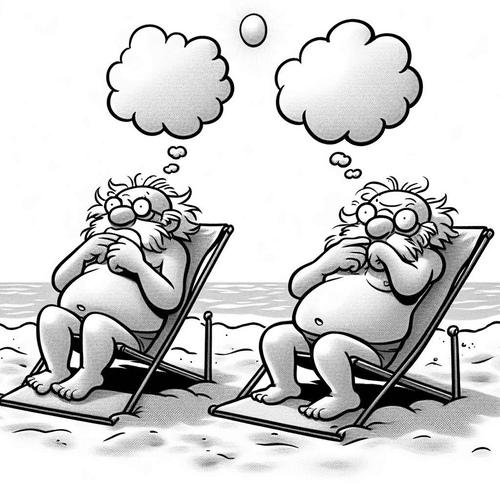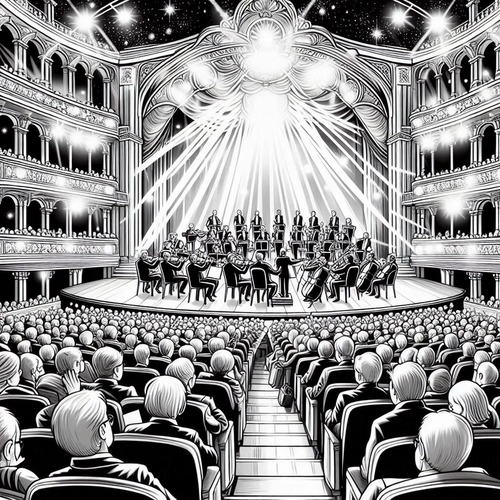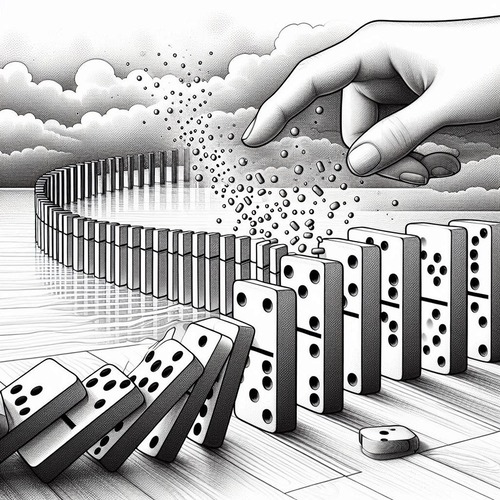The Teleological Argument: Unveiling Design in a Universe of Wonder
Unveiling Design in a Universe of Wonder
Remember those nights when you lay gazing at the intricate spirals of a galaxy or marvelling at the symphony of life on Earth? The teleological argument for God’s existence invites us to consider these wonders as evidence of a grand design. This powerful argument, also known as the “argument from design,” proposes the order and complexity of the universe don’t exist by chance, but rather point to an intelligent Creator.
A Universe Screaming Design:
Imagine a masterfully crafted watch—its intricate gears and precise timing bespeak a watchmaker. The teleological argument suggests the universe is like this watch, showcasing a level of complexity that screams “design.” Just as a watch wouldn’t exist by accident, the universe’s fine-tuned physical laws, from the perfect balance of forces for star formation to the delicate conditions needed for life, all hint at an underlying intelligence.
Beyond Chance: The Delicate Balance of Existence
Consider the Earth—its distance from the sun, its size, and its unique atmosphere—all perfectly calibrated for life. Minor alterations in these factors would render our planet lifeless. This “fine-tuning” argument highlights how improbable life is without a guiding hand.
The “unreasonable effectiveness of mathematics” in describing the universe further strengthens this point. Why do these abstract concepts perfectly align with how the universe works? This harmony suggests a pre-existing plan, potentially orchestrated by a brilliant designer.
The Mystery of Life: Irreducible Complexity
Think about the human body—a marvel of interconnected systems. The teleological argument finds support in the concept of “irreducible complexity.” Certain biological systems, like the bacterial flagellum, a microscopic motor essential for bacterial movement, are so intricate that removing even a single component would render them useless. This complexity challenges gradual evolutionary explanations, suggesting the need for an intelligent designer to assemble such systems from the start.
Beyond the Physical: The Human Experience
The human experience transcends the physical. Our capacity for consciousness, morality, and abstract thought presents a puzzle for purely materialistic explanations. While advancements like fMRI technology are helping us understand the brain better, the essence of consciousness remains a mystery. This gap in purely scientific explanations leaves room for the possibility of a higher intelligence behind human design, aligning with the teleological argument.
A Universe Whispering Purpose:
The teleological argument invites us to view the universe not as a random accident but as a meticulously crafted design. Science continues to unravel the universe’s secrets, but the teleological argument posits that the observed order and complexity are best explained by the existence of an intelligent designer. This argument serves as a bridge, allowing us to integrate scientific observations with philosophical insights, leading us to contemplate the profound design woven into the very fabric of the cosmos.
Ready to Delve Deeper?
The teleological argument sparks curiosity and opens doors for further exploration. If you’d like to learn more about this fascinating topic or other apologetics arguments, feel free to browse our website or contact us directly!
Related Reads:
- The Ontological Argument: Can We ‘Logic’ Our Way to God?
- Aquinas’ Quinque Viae: Timeless Arguments for the Existence of God
- The Universal Moral Oughts: Signposts to the Divine
- The Kalam Cosmological Argument: A Quest for Cosmic Beginnings
- The Fine-Tuning Argument: Can Orchestras Compose and Conduct Themselves?
Editor's Pick

Why Do People Hate the Doctrine of Election?
…WHEN THEY REALLY SHOULDN’T Few Bible doctrines provoke stronger reactions than election. The idea that God chose some for salvation [...]

The Doctrine of Providence: Does God Really Govern All Things?
You’re sitting in the doctor’s office when the diagnosis lands like a thunderclap. Your mind races: Why this? Why now? [...]

No Decay, No Defeat: What It Means That Christ’s Body Saw No Corruption
On the Day of Pentecost, Peter stood before thousands and made a startling claim: David's body decayed in the tomb, [...]
SUPPORT US:
Feel the Holy Spirit's gentle nudge to partner with us?
Donate Online:
Account Name: TRUTHS TO DIE FOR FOUNDATION
Account Number: 10243565459
Bank IFSC: IDFB0043391
Bank Name: IDFC FIRST BANK






